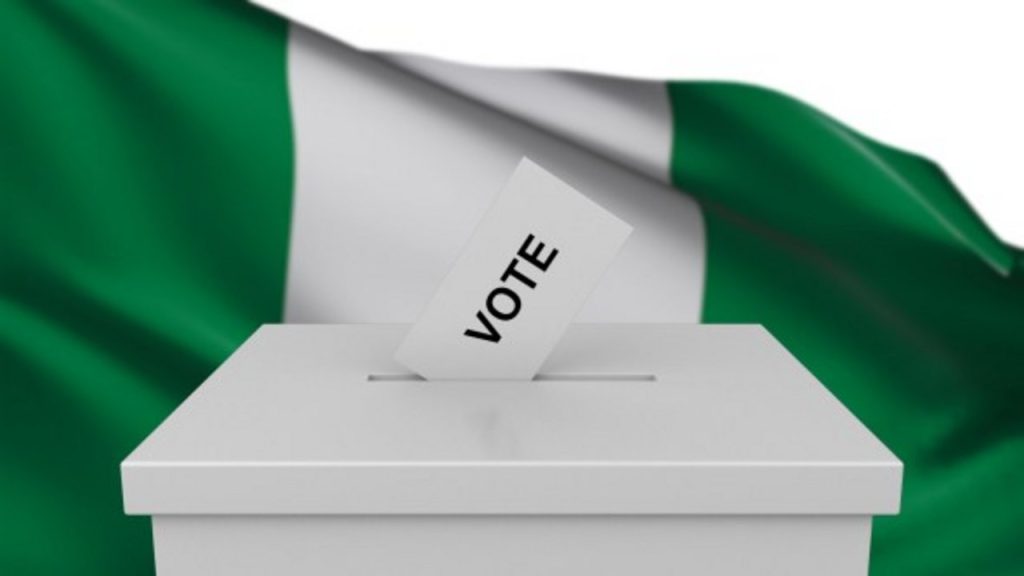
Eyitayo Folorunso
In 1999, as Nigeria transitioned from military to civilian rule, citizens flooded polling units with hope and a sense of duty. Out of 57.9 million registered voters, over 30 million voted—representing 52.3% turnout. By 2003, turnout peaked at 69%, the highest since the return to democracy. Yet since then, we’ve seen a steep and disturbing decline.
In 2007, 58% of registered voters participated. By 2011, despite over 73 million registered voters, only 53.7% voted. In 2015, the number dropped to 43.7%; in 2019, it declined to 34.75%. And in 2023—despite 93.4 million registered voters and over 87 million collecting their PVCs—only about 24.9 million people cast their votes. The message isn’t just in the figures; it’s in what they signify: democracy in distress.
Against this backdrop, two Nigerian lawmakers, Speaker Rt. Hon. Tajudeen Abbas, and Hon. Daniel Asama, a lawmaker from Plateau State, have proposed a bill to amend the 2022 Electoral Act, seeking to make voting compulsory. The intent may seem noble, but the approach is troubling. I found myself wondering: Who advises our leaders? Why do we often address symptoms while ignoring the root causes? Why do we like enforcing things after the system has failed to address the root causes?
A Yoruba adage puts it aptly: “Ajá tó ri ni to ń ju irú sugbon tó wa pada ri ni to ń gbó, ó ni ‘dí.” (“A dog wagging its tail seeing its owner but suddenly started barking at the same owner, has likely seen something wrong.”) In the same way, Nigerian voters’ increasing reluctance is not random—it’s a reaction to recurring democratic dysfunction.
During the last general elections, I was on duty in Oyo State, both reporting and trying to vote. After standing in the sun for hours, we watched the chaos unfold: delayed arrival of electoral officers, malfunctioning BVAS machines, unrecognized fingerprints, and voters leaving in frustration. One man remarked bitterly, “The results are probably already decided.” That sentiment captures the disillusionment of many Nigerians.
Several factors contribute to voter lethargy among eligible voters in Nigeria. These factors are extensive and may not apply to ineligible voters who have assisted in undermining our democracy in the country. The term ‘ineligible’ is metaphorical.
- Electoral Fraud and Irregularities
Vote-buying, ballot box snatching, underage voting, and result manipulation have plagued our elections. In 2023, Professor Nnenna Oti’s refusal to alter results in Abia State highlighted just how deeply the rot runs. Examples like this abound in our system and by extension; such a system had previously confirmed a candidate who came a distant fourth to become the winner of a gubernatorial election. The abracadabra that you may not fathom exists in our so-called democracy. What a miracle! How do we expect people to trust the process? - Poverty and Economic Desperation
With unemployment and hunger ravaging communities, many citizens prioritize daily survival over civic duties. The poor often sell their votes for stipends because, to them, food today is more real than promises of good governance. - Insecurity
Elections in Nigeria have become increasingly dangerous. Voters are attacked by thugs, harassed by security personnel, and in some cases, killed. Take the case of Mrs. Jennifer Efedi, stabbed by thugs in Lagos while trying to vote. Many polling units lacked any form of security presence. Who would risk their life for a process they no longer believe in? - Lack of Voter Education and Engagement
Our media, religious institutions, schools, and civil society organizations are not doing enough to educate voters. Many citizens don’t connect political participation with public services like roads, healthcare, and electricity. Instead, identity politics and divisive rhetoric dominate public discourse. - Outdated Electoral Systems
Despite Nigeria’s prowess in digital trading and social media engagement, we still insist on physical presence to vote. An online voting system could reduce rigging, increase accessibility, and restore public confidence—yet we’re not even close to implementing it. Our leaders visit a place like Brazil, a country which has been practising e-voting since 1996, where no one lines up to do physical voting any longer, likewise, in some other countries of the world; it is not that we cannot do it, we simply don’t want to do it.
Compulsory Voting Is Not the Answer! While it’s true that countries like Belgium (1892), Argentina (1914), and Australia (1924) introduced compulsory voting. However, many have since abandoned it due to its counterproductive effects. Even in countries where it remains, enforcement is rare and persuasion is key.
Imposing mandatory voting in a country where elections are plagued by insecurity, corruption, and incompetence is not only tone-deaf—it is undemocratic. You cannot compel people to participate in a process that seems deliberately structured to disenfranchise them. Instead, we must rebuild public trust. Let the people see that their votes count, that institutions function properly, that justice is achievable, and that their participation matters.
In conclusion, this bill is not a solution—it is a distraction. Rather than forcing Nigerians to vote, our lawmakers should address the reasons they no longer want to. Restore credibility to the process. Guarantee security. Promote civic education. Embrace technology.
Democracy dies not just when people refuse to vote, but when they are coerced to vote without choice or confidence. I urge the National Assembly to shelve this ill-conceived bill and focus instead on reviving our democracy.
Dr Eyitayo Folorunso is of the Programmes and Contents Unit, Diamond 101.1 FM University of Ibadan. He is a regular contributor in The Journal Nigeria.
